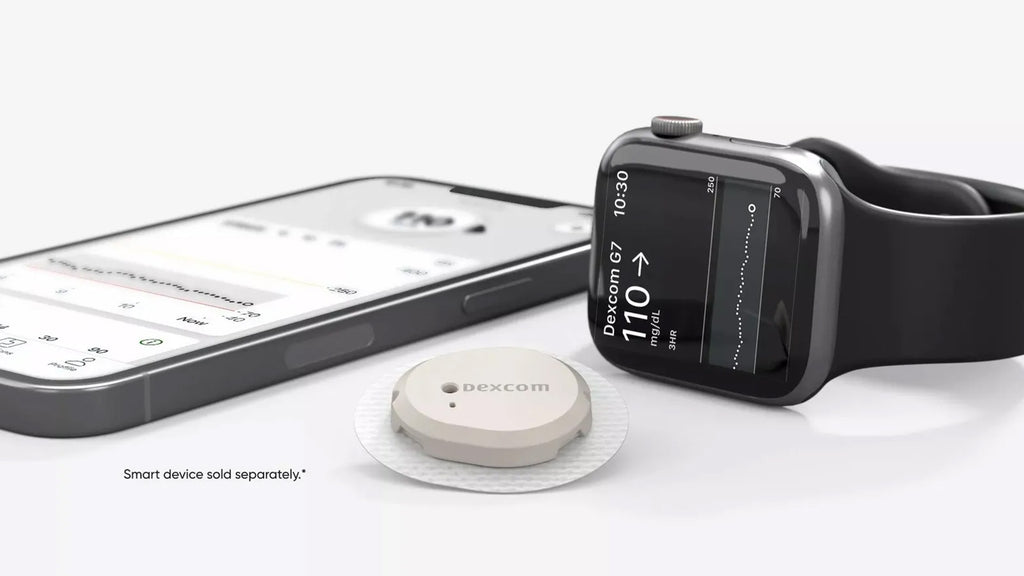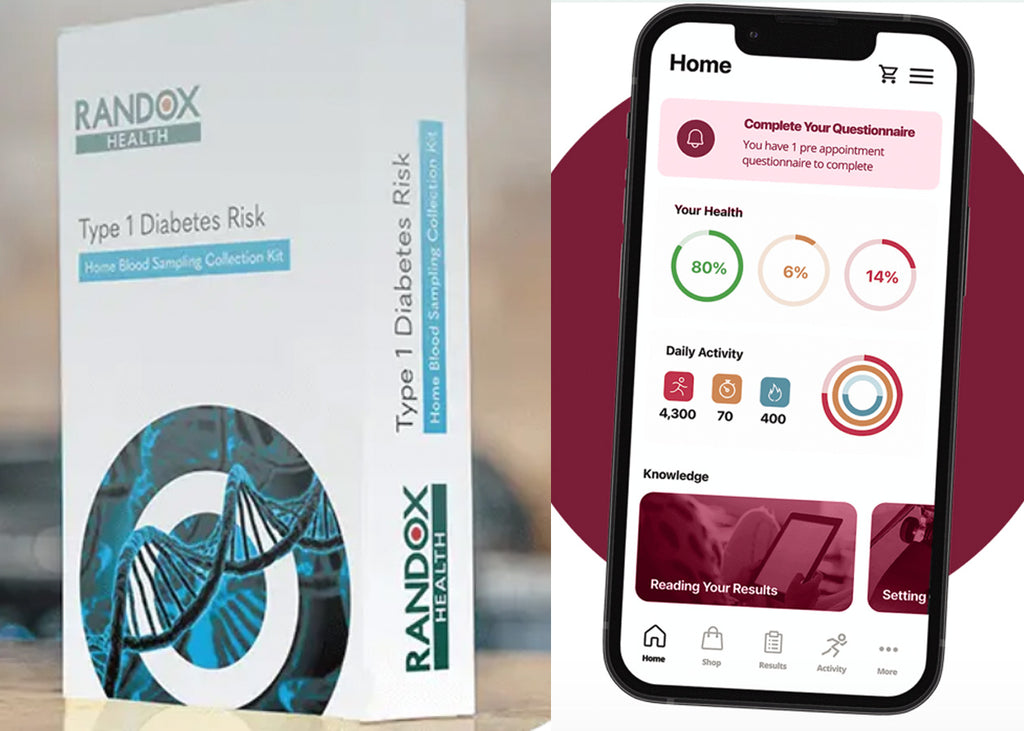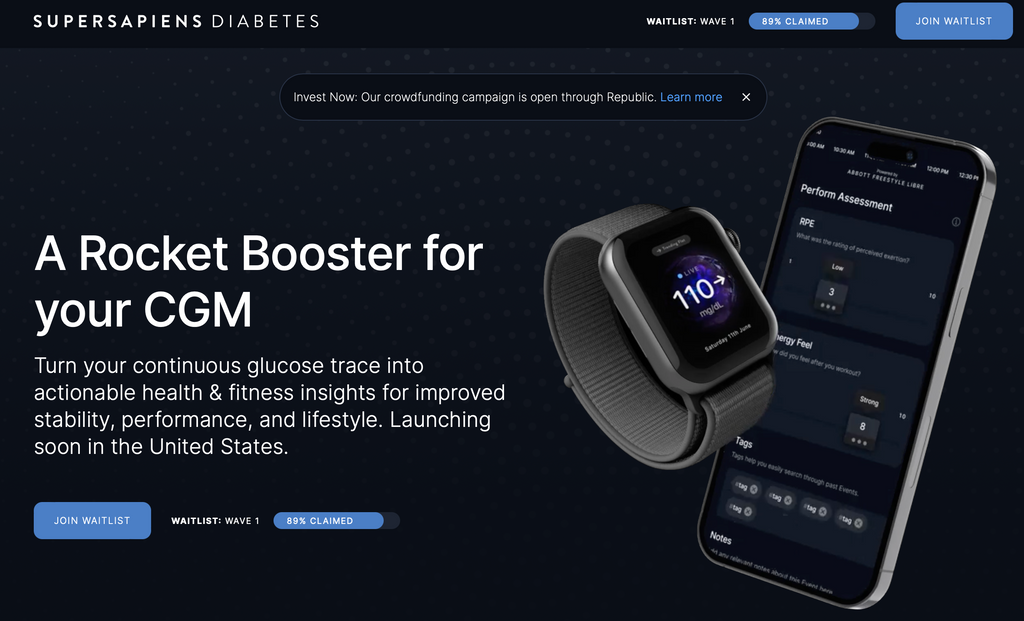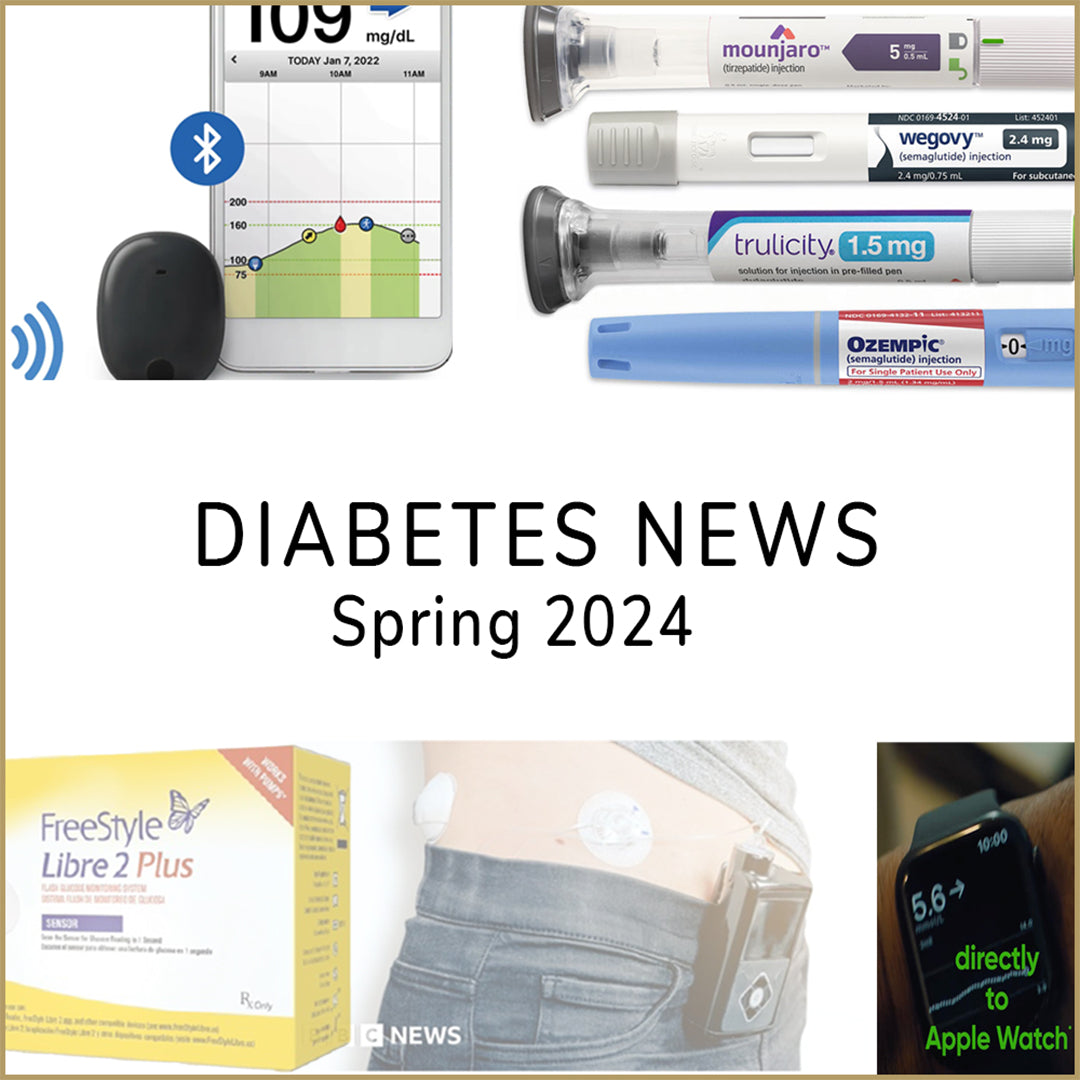In this update we are covering the news stories from March 2024, keeping you informed whether you are managing your own diabetes or doing so as a carer. More recent news articles are added at the top of this page.
MEDTECH UPDATE
To accompany this news update, we have published a new update on medtech for 2024 including all the latest information on new CGMs and updates to those we're already familiar with.Incudes insights from Dexcom, Omnipod, Medtronic, Tandem and more...
Click here to read our Medtech Update for Spring 2024.
DIABETES NEWS
BBC report on use of CGMs by non diabetics - after concern raised by Prof Partha Kar

Image courtesy of BBC News
The use of CGMs by those who don't have diabetes has been thrown into the spotlight today (16 March 2024) by a BBC News article that quotes Prof Kar as saying, "there is no strong evidence the gadgets help people without the condition." A doctor for Zoe - the nutrition app heavily marketed on social media and endorsed by Steven Bartlett and Davina McCall - defended their program that uses FreeStyle Libre for 2 weeks of glucose monitoring by participants, stating that "research is at an early stage but is cutting edge".
However, it's concerning is that the science is not yet proven (which Zoe acknowledge) and yet customers are paying high prices to provide their own data to participate in the program. There seems a widespread misunderstanding that certain foods and carbohydrates should be avoided with the (wrong) impression that sugar spikes cause diabetes.
Click here for BBC News article.
Diabetes UK upsets community with Slimming World partnership

Image courtesy of Slimming World
Diabetes UK announcement that the charity are to partner with Slimming World has upset and angered many in the diabetes community. The partnership seems to be not only at odds with the current campaign on Type 1 Disordered Eating, but fails to appreciate the negative association of stigma.
Read our blog explaining 'How Diabetes UK partnership with Slimming World has angered the diabetes community" click here.Mobile phone guidance for UK schools includes use of CGMs

New guidance issued by the UK Department for Education recommends that mobile phones should be banned in schools across England to improve behaviour. However, as this could adversely affect those using a CGM, the guidance includes the following:
"In some circumstances, supporting a pupil with their medical condition can involve the use of a mobile phone. For example, pupils with diabetes might use continuous glucose monitoring with a sensor linked to their mobile phone to monitor blood sugar levels. Where mobile phone use allows pupils to manage their medical condition effectively, it would not be reasonable for a school to prevent this."
Read the guidance here.
FDA warns against unapproved glucose measurement devices

The FDA - responsible for medical device safety in the US - have issued a warning to pwd, carers and healthcare professionals in the US not to use smartwatches or smart rings that claim to measure blood glucose levels without piercing the skin.
Dexcom CGM direct to smartwatch coming this summer

Image courtesy of Dexcom Inc
Dexcom have announced that glucose levels will be possible direct to Apple Watch for G7 iOS users in the second quarter of this year in a phased rollout, and dependent on the G7 CGM being available in a users country.
This means that the G7 will be the only CGM that can connect directly to an Apple watch without needing to carry an iPhone.
Read more here.
Non invasive CGM to seek FDA approval to be World's first

Image courtesy of Know U Labs
A new developer of diabetes medtech, Seattle-based (US), Know Labs are looking to deliver the world's first wearable non invasive glucose monitor.
The company have developed a proprietary sensor which can detect glucose levels using new radio frequency technology, without the need for a needle or filament to be insertedin the skin. They now plan to submit their KnowU CGM for clearance by the FDA.
The KnowU is designed to be worn with an adhesive or strap, so can be clipped on and off easily, and worn either on the wrist or upper arm.
It is intended the product will have a long life with the use of rechargeable battery, eliminating the use of costly disposables.
The twiist™ AID system powered by Tidepool gets FDA clearance

Image courtesy of Tidepool
Tidepool have announced a new partnership a new partnership with Sequel Med Tech following the FDA clearing Sequel’s twiist Automated Insulin Delivery (AID) system powered by Tidepool for people ages 6 and up with type 1 diabetes.
Using the technology, insulin delivery will automatically be adjusted from calculations made by Tidepool's algorithm and based on CGM readings and predicted glucose levels.
Interestingly, Tidepool originated as a patient-led initiative. Click here to read more.
Type 1 prediction test goes on sale

Image courtesy of Randox
A new test, developed by the University of Exeter, that predicts whether someone is at risk of developing type 1 diabetes is now on sale in the UK by Randox.
It's basically a finger-prick test that can identify up to 10 generic variants linked to being a risk for T1D. The test is being sold online and though some John Lewis stores for £89. Adverts started to appear on the London Underground, however, it's understood these are being removed as promoting stigma and misconceptions.
Find out about the test kit on Randox website here.
NHS diabetes medication shortage update
The Diabetes Specialist Nurse Forum have updated their information on insulin's currently not available in the NHS. This is available for download, with alternative recommendations on the Diabetes 101 page (for PWD), click here.
Supersapiens terminates memberships & athlete support

Image courtesy of Supersapiens Inc
When Supersapiens launched a nutrition program using a FreeStyle Libre sensor, there was much discussion in the diabetes community as to the use of the medtech. With many other businesses entering this space and expanding to cover wellness and gut health, the majority also using a Frestyle Libre sensor with their own app, the market has exploded.
But for Supersapiens, their support for athletes using a CGM appears to have ended yesterday with the announcement that they are going through a strategic restructuring, involving terminating memberships, no longer sending sensors and ending access to their app dashboard and integrations on 31 March.
Just last month Supersapiens announced they will be offering a diabetes program in the US. It's not clear if this will now go ahead.
Read the statement from Supersapiens here.
DIABETES RESEARCH
Monkey becomes insulin-independent after cell transplant
A project looking at cell therapy as a cure for type 1 diabetes has demonstrated that glucose levels in a monkey with type 1 diabetes can be stabilised without using immunosuppressants, through the transplant of genetically edited cells ie. islets.
The next step for the project is to conduct human trials by implanting islet cells which can hide from both the immune attack that causes type 1, and the body’s natural immune response to cells that comes from the cells of a different animal being implanted.
The project is being carried out by researchers in California for Sana Biotechnology, with funding from JDRF, and has been published in the journal Cell Stem Cell.
Click herefor more about the project.
Red light reduces blood glucose levels
Research by City, University of London and UCL has shown that red light therapy can reduce blood sugar levels by up to 30% and reduce glucose 'spikes'.
Although the study was conducted in healthy individuals, there is the potential this could be applied to help those with diabetes control blood glucose fluctuations after meals.
Read the full article. Click here.
Highly refined carbs at breakfast could make you less attractive

A study by scientists at the University of Montpellier, and published in science journal Plos One, suggests that people eating a breakfast rich in refined carbohydrates subtly changes facial attractiveness because of changes in glucose levels.
The authors of the study related attractiveness to the relationship of carbohydrates to blood flow. "We found most peolple look healthier, and more attractive, when their skin colour reflects a slight rise in oxygenated blood."
Read the full article from the Guardian website here.
Oxford University researchers awarded grant for UK's first Type 1 Registry
That's it, you're up-to-date!
Thank your for reading. We hope you've found these stories insightful. If you have any comments please email us - hello@lovemylibre.com
If you're not currently a member of our community please join us by signing up below. We look forward to welcoming you!
Disclaimer
Blogs and publications on this website are independent of any involvement by medtech companies or diabetes related charities. To ensure there is no bias, we do not accept any products, freebies or other material from any medtech provider. Except where credited otherwise, all materials are copyright ©️Love My Libre Ltd.
Love My Libre is not associated or affiliated with Abbott or FreeStyle Libre. Content here and on our website www.lovemylibre.com does not constitute medical advice or replace the relationship between you and healthcare professionals nor the advice you receive from them.
The author of this blog has type 1 diabetes and uses the FreeStyle Libre 2 which is provided on NHS prescription.






Leave a comment (all fields required). Please note, we are unable to respond to individual comments posted here.